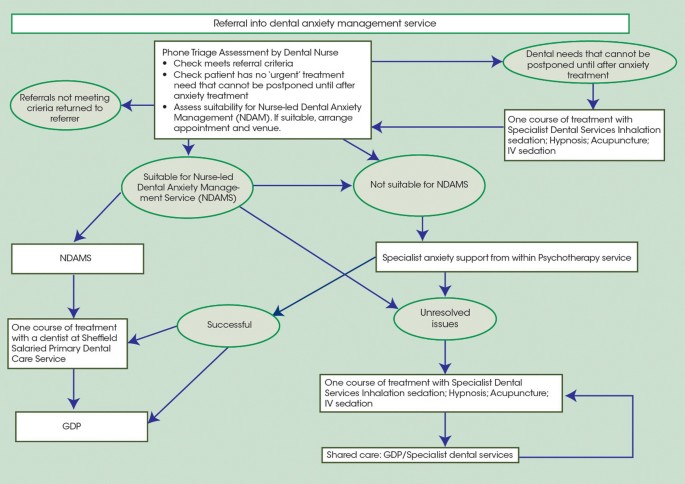Introduction
Do you feel a sense of dread when it’s time for a dental appointment? Does the thought of sitting in that dental chair make your heart race and palms sweat? If so, you’re not alone. Dental phobia affects millions of people worldwide, causing them to avoid necessary dental care and suffer from deteriorating oral health. However, there are effective strategies and techniques that can help you manage and overcome your dental anxiety, allowing you to receive the dental care you need without fear or stress.
Understanding Dental Phobia
Dental phobia, also known as dental anxiety, is a common condition that affects many individuals. It is characterized by an intense fear or anxiety associated with dental visits and procedures. This fear can be triggered by various factors, such as the fear of pain, needles, or the dental environment itself. Dental phobia can have a significant impact on a person’s oral health, as it may prevent them from seeking necessary dental care.
The Consequences of Dental Phobia
When dental phobia is left unaddressed, it can lead to several negative consequences. Individuals with dental phobia may avoid routine dental check-ups and cleanings, which can result in the development of oral health issues such as cavities, gum disease, and tooth loss. Additionally, the fear and anxiety associated with dental visits can cause individuals to delay seeking treatment for dental problems, leading to more extensive and costly procedures in the future.
Overcoming Dental Phobia

Fortunately, there are various strategies and techniques that can help individuals manage and overcome dental phobia. Here are some effective approaches:
Communication with the Dentist
Openly discussing your fears and concerns with your dentist can help alleviate anxiety. A compassionate and understanding dentist will take the time to listen to your worries and explain procedures in a way that makes you feel more comfortable.
Gradual Exposure
Gradual exposure to dental procedures can help desensitize individuals to their fears. Start with simple and non-invasive treatments, such as dental cleanings, before progressing to more complex procedures. This step-by-step approach allows individuals to build trust and confidence in the dental setting.
Relaxation Techniques
Practicing relaxation techniques, such as deep breathing exercises or meditation, can help reduce anxiety before and during dental visits. These techniques promote a sense of calmness and can distract individuals from their fears.
Sedation Dentistry
Sedation dentistry involves the use of medication to help patients relax during dental procedures. This option is particularly beneficial for individuals with severe dental phobia.
Summary
In this blog post, we will explore the various aspects of dental phobia and provide practical tips to help you overcome your fear. We will discuss the common causes of dental anxiety, such as past traumatic experiences or fear of pain, and how these fears can be addressed. Additionally, we will delve into the importance of open communication with your dentist and the dental team, as well as the benefits of seeking professional help, such as therapy or sedation dentistry.
Furthermore, we will explore relaxation techniques that can be utilized before and during dental appointments to help calm your nerves. From deep breathing exercises to listening to soothing music, these techniques can significantly reduce anxiety levels and create a more positive dental experience.
Lastly, we will provide practical advice on how to maintain good oral hygiene at home, as prevention is key to avoiding extensive dental treatments. By implementing a consistent oral care routine and understanding the importance of regular dental check-ups, you can minimize the need for invasive procedures and alleviate some of the anxiety associated with dental visits.
By the end of this blog post, we hope you will feel empowered and equipped with the knowledge and tools necessary to manage your dental phobia. Remember, dent check that al care is essential for your overall health, and with the right strategies in place, you can transform from an anxious patient to an assured one.
- Q: What is dental phobia?
- A: Dental phobia is an intense fear or anxiety related to visiting the dentist or receiving dental treatment.
- Q: What are the common symptoms of dental phobia?
- A: Common symptoms of dental phobia include increased heart rate, difficulty breathing, sweating, feeling faint, and panic attacks.
- Q: How can dental phobia be managed?
- A: Dental phobia can be managed through various techniques such as deep breathing exercises, relaxation techniques, cognitive-behavioral therapy, and the use of sedation dentistry.
- Q: What is sedation dentistry?
- A: Sedation dentistry involves the use of medication to help patients relax during dental procedures. It can range from mild sedation to general anesthesia.
- Q: How can I overcome dental phobia?
- A: Overcoming dental phobia may require gradual exposure to dental settings, seeking support from a therapist or support group, and open communication with your dentist about your fears and concerns.
- Q: Can dental phobia be completely cured?
- A: While dental phobia may not be completely cured, it can be effectively managed with the right techniques and support.
- Q: How often should I visit the dentist if I have dental phobia?
- A: It is recommended to visit the dentist at least twice a year for regular check-ups and cleanings, even if you have dental phobia. Regular dental care can help prevent more extensive treatments in the future.



